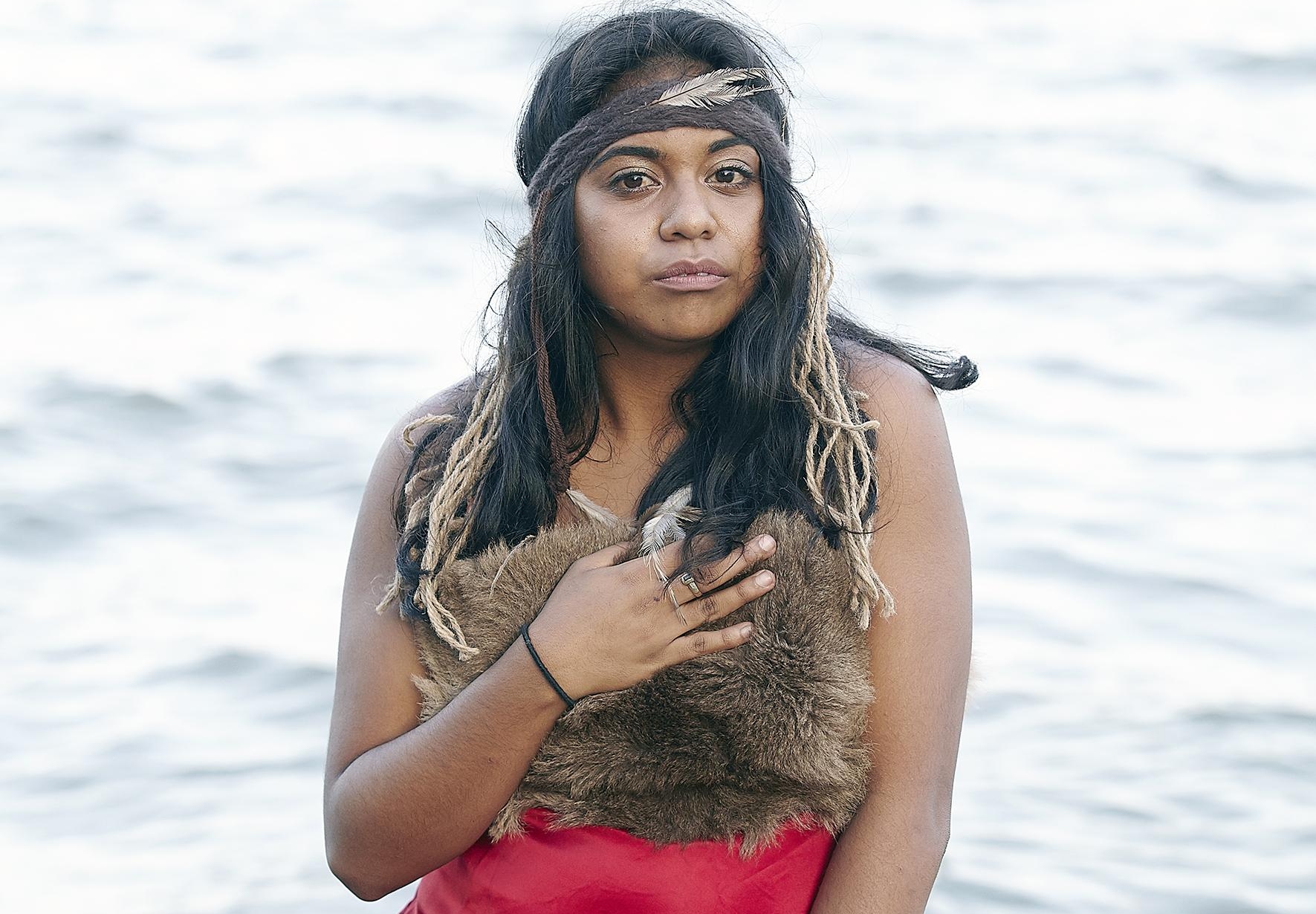As Westerners, we often neglect the non-English singing bands of the world and while Western artists clog the mainstream across the globe, the opposite can scarcely be said. Despite the apparent ignorance and lack of curiosity for music scenes that exist outside our Western bubble, the power of music means that, when done right, it can transcend the confines of language to evoke a universal reaction.
From the abundance of Indigenous musicians performing in their native languages in our own country, to those artists permeating cultural barriers across the world – here are some non-English singing artists proving music is a power which extends beyond language.
Dungen – Sweden
Swedish psychedelic rock outfit Dungen have been cited as an influence for Tame Impala, with the two bands’ sounds often compared by critics and the media. Dungen had such an effect on the band that in 2007, Kevin Parker sent them Tame Impala’s new material, requesting the band mix the recordings. Dungen turned down the request, adamant that it needn’t be mixed and should rather be released as is. Famously, the band were also approached to score the first animated film in cinema history, Lotte Reniger’s 1926 landmark silent film, The Adventures of Prince Achmed – an instrumental body of work later released under the name Häxan. Dungen are hailed as pioneers of the psych-rock renaissance, their complex compositions serving as a touchstone for the genre across the world.
Xylouris White – Crete
You may know half of Australian/Cretan duo Xylouris White – drummer Jim White – from his career in the homegrown instrumental trio, Dirty Three. However, chances are you’re less familiar with the other half of the duo, acclaimed Cretan laouto player, George Xylouris. While much of Xylouris White’s discography is instrumental, their latest album Mother sees Xylouris lending vocals in his native tongue. Melding the thunderous power of White’s drumming with the traditional sounds of Xylouris’ natal Greek isle, the duo’s sound is almighty, primal and unparalleled. Oft defined as World Music due to their unprecedented, genre-defying sound, Xylouris White are a refreshing change of pace for those who claim contemporary music can’t be original.
Kikagaku Moyo – Japan
After their humble beginnings as a busking collective on the streets of Tokyo, psychedelic rock outfit Kikagaku Moyo have become somewhat of an international treasure, lauded by the likes of King Gizzard and the Lizard Wizard for their immersive soundscapes. Kikagaku Moyo translates to Geometric Patterns, an apt choice considering their sound is much like an aural jigsaw of congruous layers, comprising everything from hard-edged rock to minimalist, floating melodies. Fusing elements ranging from sitar to synth and taking influence from folk and rock, Kikagaku Moyo are somewhat of a fever dream for the senses, showcasing the elusive Japanese music scene while whisking listeners on a cosmic journey.
Carla Bruni – France
Carla Bruni is somewhat of an enigma. The Italian-French supermodel cum actress and musician added the First Lady of France to her various titles after marrying French president Nicolas Sarkozy one year into his half-decade career as the nation’s leader in 2008. While Bruni’s discography sees her alternating between English and French, it’s the latter where her music truly shines. French is universally declared the most romantic language in the world, so when crooned by Bruni’s husky voice and accompanied by sweeping melodies, one can’t help but find themselves entranced. A household name in her own land, Bruni’s debut album Quelqu’un m’a dit was an instant success, the record’s title track going on to feature in the Hollywood hit film 500 Days of Summer seven years later. No matter what language you speak, Bruni’s soft coos are tres bien.
Sigur Ros – Iceland
Sigur Ros are perhaps one of the most familiar foreign names in contemporary music, after breaking through into the Western mainstream with their ambient avant-rock. Having fronted stages at the likes of Splendour In The Grass and Bluesfest, it’s safe to say the magic of their music is not lost in translation. In fact, while many of Sigur Ros’ tracks are sung in Icelandic, the band are also known for their use of ‘Hopelandic’, a gibberish language the band’s frontman Jónsi Birgisson invented to fit the melody of ‘Von’ – Icelandic for hope – on their debut album. Language isn’t the only way the band set themselves apart, either. From playing the bass guitar with a drumstick to using a violin bow on lead guitar, Sigur Ros are highly innovative when it comes to crafting their melodies. The band recently incurred controversy resulting in drummer, Orri Páll Dýrason, retiring following allegations of rape.
Emily Wurramara – Australia
Hailing from Groote Eylandt in the Northern Territory, Indigenous singer-songwriter Emily Wurramara is criminally underrated within the Australian music scene. Singing in both Anindilyakwa and English, Wurramara’s music is a testament to her heritage. After moving to Brisbane from one of the most remote corners of Australia at the age of six, Wurramara distanced herself from her native language out of fear of being chastised by her peers. Now, she wears her heritage with pride, incorporating Anindilyakwa into her music and using incidents of racial discrimination to fuel her storytelling lyrics on tracks like ‘Black Boy’ and ‘Hey Love’. At only 22 years old, Wurramara plays six instruments including the ukulele, piano and guitar. With a voice as soft as smoke, often arranged in textural harmonies, set against gentle, cathartic melodies, Wurramara’s sound is comforting, warm and intrinsically Australian.
Gogol Bordello – Various
Gypsy-punk outfit Gogol Bordello instil the very definition of world music, its lineup hailing from Ukraine, Ethiopia, Russia, Ecuador and the US. Founder and frontman, Eugene Hütz became somewhat of a nomadic musician after being evacuated from his home in Ukraine, finding himself entranced by the mystical world of gypsy music as he traversed the globe. After living as a refugee in Poland, Hungary, Italy and Austria, Hütz moved to the United States where he teamed up with now bandmates Sergey Ryabtsev and Vlad Solofar. The current lineup features seven members, though there has been a stream of faces featuring in the band since its 1999 inception.
Hütz’s lyrics encompass a breadth of languages including Ukrainian, Spanish, Portuguese and English, making their music highly palatable across the globe. Often described as Gypsy punk or Latin rock, Gogol Bordello’s sound is grandiose, boisterous and whimsical.
Rammstein – Germany
While Rammstein have been around since the mid ‘90s, it’s impossible to talk about international outfits without mentioning the Berlin-born pioneers of industrial metal. Between lead vocalist Till Lindemann’s satanic rasp and the thunderous power of the outfit’s gothic, thrashing Neue Deutsche Härte sound, there’s little surprise as to how Rammstein managed to break through into the international mainstream. Almost 25 years into their career, the band are still going strong.
Notorious for their explosively theatrical and energetic live performances, Rammstein are an immense force. The band have faced an onslaught of controversy across their career, with perpetrators of massacres such as that of Columbine High School, Isla Vista and Jokela High School all cited as avid fans of the German band, sparking accusations that their dark, furious sound insidiously encourages violence.







